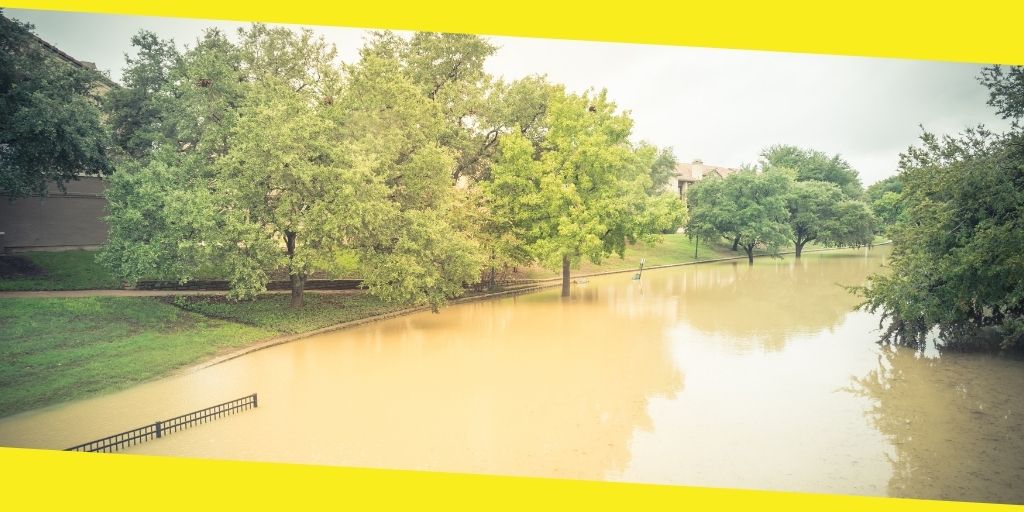10 Safety Tips Before Flood Cleanup

Annually, floods cause huge losses to lives and property. Billions of dollars are washed away, and families left mourning their loved ones. But what do you do when you are caught up in a flood situation? What is the most important priority for you and your family? Definitely, safety is the most urgent and critical issue on the list. You can lose and recover property plus other worldly valuables. However, you can’t recover the life of a beloved one who has succumbed to floods.
Depending on their magnitude, some floods require you to leave your home and temporarily settle elsewhere before returning and conducting any flood clean up. Whether you are evacuated from your home or not, always abide by safety rules that will take care of your bodily wellbeing. This post discusses the top safety tips to follow after a flood sweeps through your area or home. Keep on reading to learn how to protect your family after a flood.
Contents
Toggle1. Only Go Home When It’s Safe
Most floods prompt evacuations until it’s safe to return home. If you are caught in such a situation, it’s to your ultimate safety to stay away from your home until it’s safe to return. You have to wait for orders from the relevant local authorities assuring you that it’s safe to return.
2. Avoid Direct Contact With Water
Avoid contact with floodwater at all costs because such water could contain toxins like raw sewage or harmful chemicals. Even floodwater from a burst pipe could be contaminated if it stays for over two days.
3. Mind Your Steps
It’s wise to mind your steps when returning to a flooded home. Watch your steps because dangerous objects like broken bottles and nails could cover the ground after a flood. Also, mud-covered floors or stairs are slippery and could cause dangerous slips and falls.
4. Ventilate Your Premises
Ventilate your house after returning from evacuation. It’s safe to open doors and windows to let fresh air circulate following a long period of closure. Otherwise, contaminated air might cause breathing complications, especially to persons with respiratory complications, kids, and elderly family members.
5. Use Your Smell
You should also use and trust your nose upon returning home. If you smell any pungent smell like natural gas, vacate the house immediately and call a gas company to turn off the main valve.
6. Watch Out for Structural Hazards
You also need to watch out for any structural hazards in the home after a flood. Stay away from any sagging ceilings or cracked walls. You can also do the following to avoid all potential disasters:
- Check out if the house’s foundation is settling, cracking, or undermined;
- Assess the walls, floors, and windows to ensure they’re safe;
- Call an electrician to check the electrical system.
7. Avoid Electrical Hazards
Electrocution is a possible and costly occurrence following a flood. Therefore, be careful and avoid it at all costs. Switch off the power at the main switch and ensure that the entire electrical system is sound before resettling in the home. The reason is that disconnected live wires could be in the house or flood water. You can also go the extra mile by wearing rubber boots before entering the house.
8. Wear Protective Gear
You also need to wear protective gear when returning home after a flood. Wear rubber gloves, waterproof boots, and a high-quality face mask.
9. Avoid Contaminated Food and Water
It’s prudent to pay attention to your health and that of your family. Even if you left home for just two or three days, avoid all foods floodwater has contaminated or those near floodwaters. Follow this safety advice even if your fridge or food cabinet was too high to allow floodwater in. Remember, food is cheaper, and you can buy it anytime. However, your health and that of your family is priceless.
Similarly, pay special attention to water. Never drink flood water or use it to wash your dishes, brush your teeth, wash food, or prepare meals. Only drink safe, clean water, especially bottled water, until your local water advisory says that it’s safe to do otherwise.
10. Prevent Carbon Monoxide Poisoning
Lastly, prevent carbon monoxide poisoning after returning home. You don’t want to escape from one danger and land into another one. If you are using a generator, do so at least 20 feet away from all doors, vents, and windows. Do the same for pressure washers.
Floods strike different parts of this country any time of the year, necessitating flood clean up. Thus, it’s critical to abide by post-flood safety rules when resettling in your home. Use the tips this post shared to resettle your family safely and enjoy your regular life again.
Recommended For You
7 Reasons Why 1xBet is Ideal for Newcomers to Betting
Most Inside
Most Inside offers high-quality recommendations and valuable updates to enhance all aspects of your life, providing premium guidance and enriching experiences.




